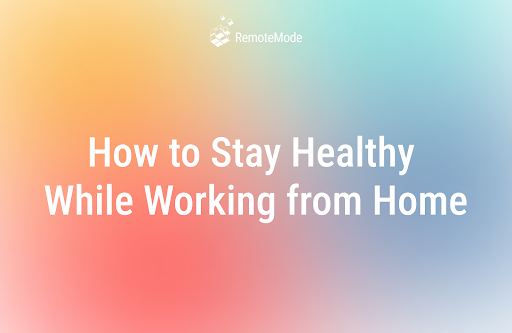Mentors Make the Difference: Get advice from an experienced professional

A mentor is like gold. It doesn’t take a lot to make you rich.
Mentoring was once simply a natural way for experienced people to help inexperienced people learn skills, crafts, and wisdom. Think of Yoda and Luke Skywalker or Gandalf and Frodo. Luke sought out Yoda because he wanted to learn the skills of a Jedi from a master. On the other hand, Gandalf sought out Frodo because the wizard knew the little hobbit needed skills and wisdom to defeat Sauron.
In today’s business climate, mentoring has become a formal program. Mentors are often assigned by management to their mentees. They follow a prescribed regimen of meetings and counseling sessions. Savvy companies see the value in mentoring to expedite the advancement of their promising young talent.
RemoteMode also recognizes the value in creating mentoring relationships for their students. A mentor is built into the RemoteMode full-service career preparation program for each learner. RemoteMode has proven the value of mentors in helping students succeed in training, finding a job, and advancing their careers.
What Is a Mentor?
Simply stated, a mentor is a person who can guide, support, and advise you in whatever you are pursuing. A good mentor takes the time to get to know you, your personality, your interests, and your goals. The mentor then uses their experience and knowledge to help you develop yourself to your fullest potential.
Along with helping you pursue your goals, a mentor may help you see things in a different way, challenge your assumptions about your limitations, and broaden your horizons. A mentor may share their own experiences and life lessons, aiding you in shortcutting the painful trial-and-error lessons that could become stumbling blocks to your progress.
Good mentors are first and foremost good listeners. They ask questions, empathize with your struggles, encourage you to excel, and increase your self-awareness. Most importantly, good mentors are honest. They tell you what you need to hear, even when it’s uncomfortable.
How Does a Mentor Help with Training?
If you get the right mentor, you trust that person because they have been down the very road on which you are embarking. They know what it is like to enter a new and perhaps unfamiliar world. They have stood at the foot of the mountain and looked up to the summit and wondered if the climb is reasonable or even possible.
They build your confidence because they have already scaled that mountain, just as you are about to do. They know the secure handholds and footholds, where the trail smooths out, and where you are liable to hit a slippery slope. They not only guide you along the path, but they cheer for you every step of the way. Having been to the summit before, they remind you of the worth of the goal you have set and how marvelous your life will be when you reach it.
A mentor also helps you over the rough spots. They can teach you strategies for overcoming challenges with studying, test taking, information retention, self-management, and motivation. Remember, your mentor has been up this road and hit every snag you may encounter. If your mentor could do it, you can do it too.
How Does a Mentor Help with Finding a Job?
Just as your mentor survived a challenging training program, they also had to find their first job. They probably made mistakes along the way from which they have learned important lessons—lessons they are anxious to share with you to ensure your success in your job hunt. Through experience as a successful job seeker and perhaps as a hiring manager, your mentor knows how to find job openings that match your skills, how to network with professionals who can open doors for you, and how to craft a CV that will land on the top of the hiring manager’s stack instead of on the bottom.
Tricks exist in the job-hunting game that make the difference between fruitless wading through endless job descriptions and zeroing in on the right opportunities. Your mentor can teach you how to search, where to look, and when to leap onto an opening. Your mentor helps you sift through the jargon of role descriptions to find the meat that matches your qualifications.
A mentor can also coach you on making the first contact, responding to invitations, and deciphering the hiring lingo. For instance, when does “no” mean “no” and when does it mean “not yet”?
Once you land that all-important first interview, your mentor can assist you in preparing. The mentor knows the kinds of questions to expect and what answers will show your depth and breadth of knowledge. The mentor can also suggest cogent questions that you should ask of the interviewers—vital questions that help you determine whether the position and company would be the best fit for you.
How Does a Mentor Help with Career Development?
Throughout the training and job-search processes, you will build a strong and lasting relationship with your mentor. You are wise not to discard that relationship once you begin your career. Because your mentor has traveled your journey, you want to continue to follow in that person’s footsteps. Your mentor can aid in deciphering office politics—as much as we hate to admit it, every job has its political drama. Someone who has swam the channel can help you navigate the choppy waters.
Your mentor is a resource of both professional and personal knowledge. They can assist you in carving a path from entry-level to senior-level, show you branches and lateral moves to consider, and continue to support and cheer you on.
Bright people rise through the ranks faster when they are accompanied by a mentor. Allow your mentor to guide you. Listen to the questions your mentor asks you, and ponder your responses. You may already have many of the answers for your career, but the mentor’s wise queries help you find your own answers.
Final Thoughts
Now, to be clear, a mentor is not a coach. A coach plays a proactive role, always watching your performance, looking for areas to improve, and then telling you what to do to get better. A mentor plays a more passive role. You are the one who must be observing yourself, looking for weaknesses and limitations, and then bringing your concerns to your mentor. Mentors guide by leading, not by pushing.
The mentors in the RemoteMode program are practicing professionals in the tech sector. They know the technology, the job market, and the dynamics of building a solid career. When you enroll with RemoteMode, you will be matched with a mentor who can support you through your training, your job search, and your assimilation into the professional workforce. Your mentor alone is worth the cost of your training program. Contact a RemoteMode career advisor today to learn more about the built-in mentoring service and all the other features of a RemoteMode career preparation program.
Take the first step to your new remote career!






